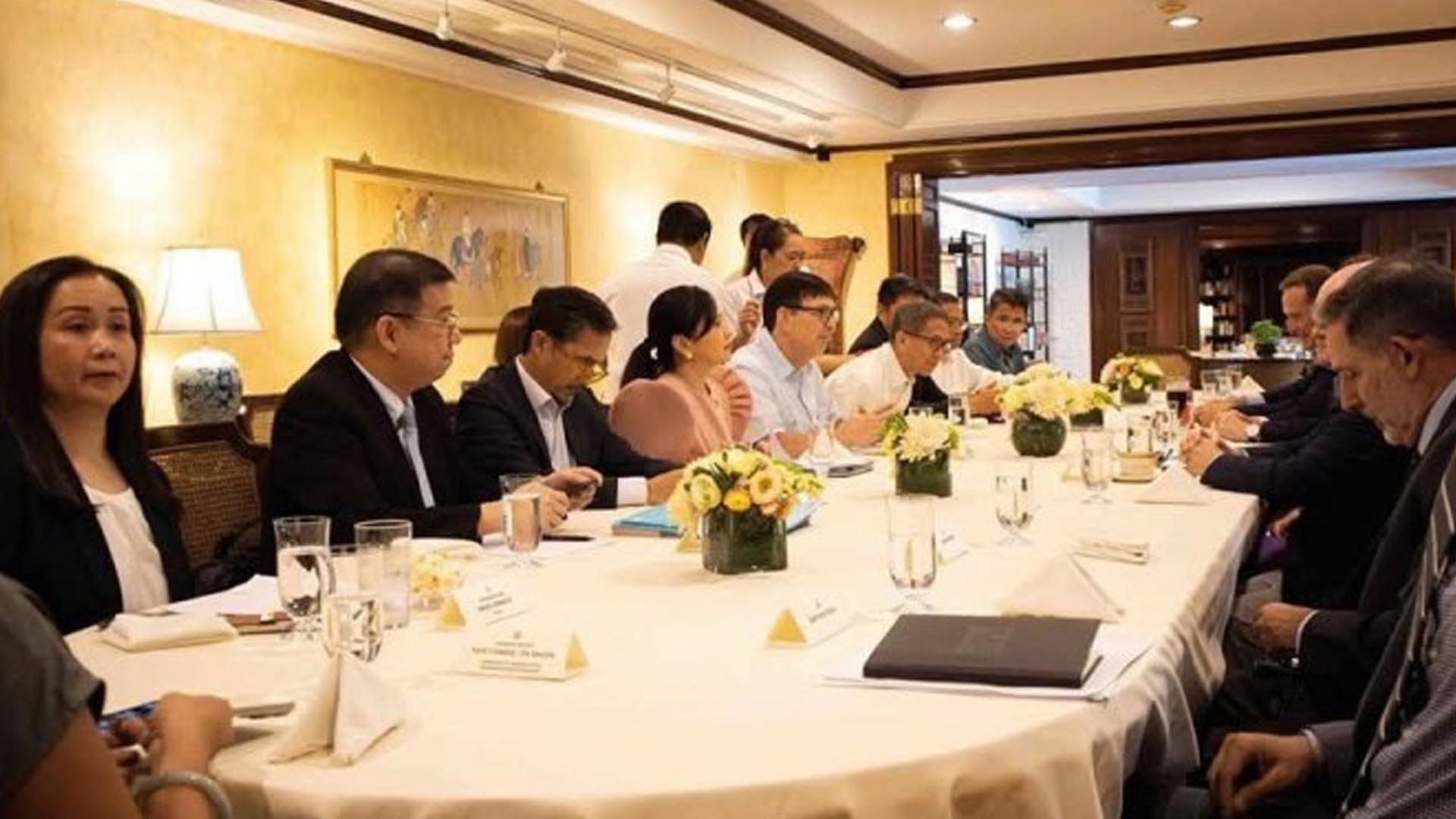The Philippine government has signaled its “strong intent” for a strategic economic alignment with the United States amid global challenges during the visit of a bipartisan US Congressional Delegation to Manila.
In a meeting with US Senator Pete Ricketts (R-Nebraska), Senator Chris Coons (D-Delaware), and Senator Ted Budd (R-North Carolina) on Tuesday, Trade Secretary Cristina Roque said Manila is open to forge “deeper engagement” with the US as a “strategic economic partner” in an increasingly complex global environment.
“More than a diplomatic courtesy, the engagement served as a strong signal of intent – that the Philippines is ready to pursue strategic alignment with the United States as a pathway to greater economic security, innovation-led development, and mutual prosperity,” the DTI said in a statement dated April 16.
Also present during the visit, a first under the new Trump administration, were Transportation Secretary Vince Dizon, Energy Secretary Raphael Lotilla, Information and Communications Technology Secretary Henry Rhoel Aguda, and Finance Secretary Ralph Recto.
Roque said Manila is keen on bolstering cooperation in critical sectors, including clean energy, digital infrastructure, transport modernization and fiscal sustainability.
In 2024, the US imported USD14.2 billion from the Philippines, a 6.9 percent increase from 2023 level, while exports to the Philippines during the same year reached USD9.3 billion.
According to the DTI, US accounted for 17 percent of Philippine exports in 2024.
Key imports from the Philippines are semiconductor devices and computer peripherals, automobile parts, electric machinery, textiles and garments, wheat and animal feeds, coconut oil, and information technology/business process outsourcing services.
US, meanwhile, exports agriculture goods, machinery, cereals, raw and semi-processed materials for the manufacture of semiconductors, electronics, and transport equipment.
The landmark 123 Agreement or the US-Philippines Agreement for Cooperation in Peaceful Uses of Nuclear Energy signed in 2023 also entered into force last year. It allows the transfer of information, nuclear material, equipment, and components directly between the two states. (PNA)








